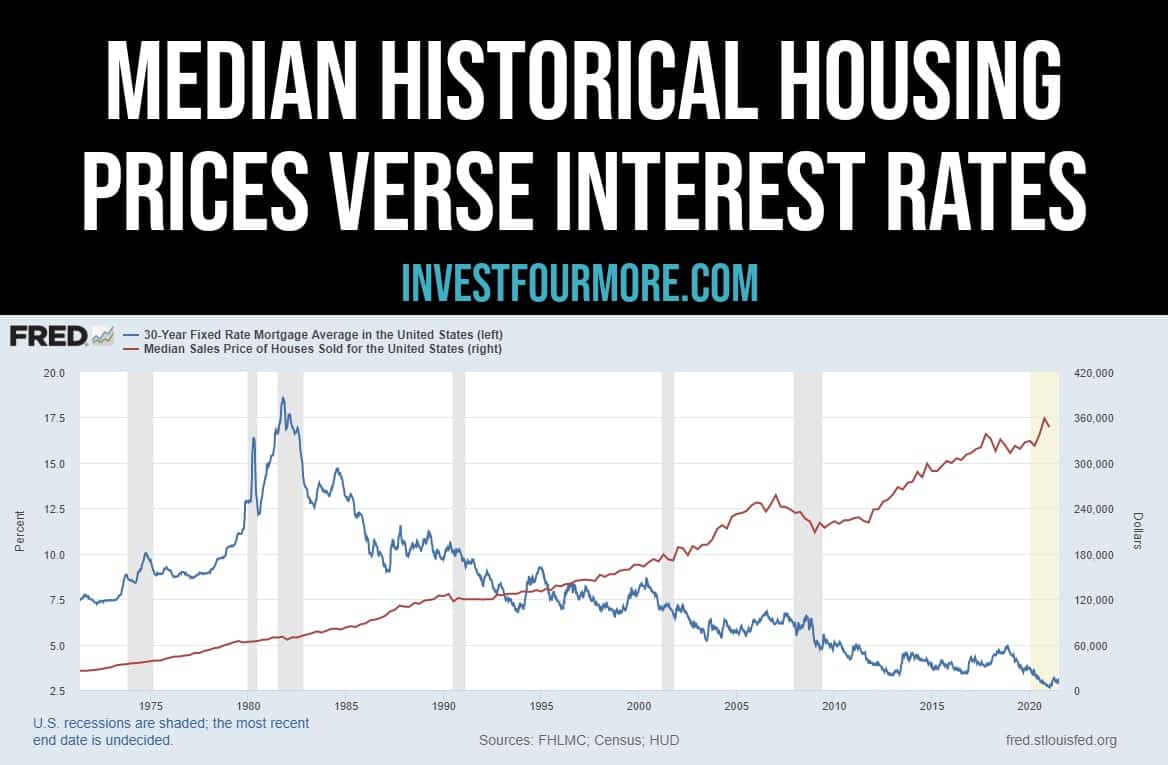
Is It True That High Interest Rates Will Cause Housing Prices to Drop?
I have been hearing repeatedly how high interest rates will cause housing prices to drop. But is that what the data says? I think a lot of people assume that housing prices drop when rates go up and housing prices go up when interest rates go down. The reason people assume this is because you can buy much more home with low rates and much less home with higher rates. When looking at historic rates and a few studies that have analyzed rates, there is no clear correlation between interest rates and housing prices. Further, some studies conclude there is a correlation while others have said there is no correlation! None of the studies or data seem to suggest dramatic changes in the housing market based on interest rates alone. We did see a huge drop in the housing market in the late 2000s after a rate hike, but there were also many other factors at play. There was a much higher interest rate hike in the 1970s and 1980s with no significant drop in housing prices.
How do interest rates impact the affordability of a home?
When buying a home, banks will qualify buyers based on the monthly payments and what a bank thinks that buyer can afford. Interest rates have a huge role in what those payments will be and what price a buyer can qualify for. For example, a $300,000 mortgage with a 3% interest rate would have the following payment:
-
Payment: $1,264.81 Principal: $514.81 Interest: $750.00
It may surprise many people how low that payment is! There will be other costs when you own a home like property taxes and insurance which can vary widely state by state. For the numbers above, the principal is the amount paid off the loan the first month and the interest is how much interest is paid each month. Every month those numbers will change as more of the loan is paid off. If the rate goes up 1% here is how those numbers change:
-
Payment: $1,432.25 Principal: $432.25 Interest: $1,000.00
As you can see the payment goes up significantly while the principal paid off goes down as well. Low interest rates are a really good thing for homeowners! What if we raise the interest rate even higher to 6%?
-
Payment: $1,798.65 Principal: $298.65 Interst: $1,500.00
The payment is even higher and most of it is going to pay the interest. How much does this impact the price of a home someone could afford? At a 6% interest rate, the payment would be $1,259, or about the same as the 3% rate on a $300,000 home. Interest rates can have a drastic impact on how much home someone can afford!
Do interest rates historically impact housing prices?
Many people have told me to just wait until interest rates go up and the housing market will crash. But, do interest rates have that big of an impact on housing prices? We can see that they directly impact how much house someone can afford but there are about 1,000 other factors that drive housing prices up and down. Some of the things that we must look at in regards to housing prices are:
- Housing supply: How many houses are currently for sale compared to the demand for housing
- Economy: Do people have jobs and money to pay for housing?
- Lending guidelines: Are the current loans based on solid financials or pipe dreams?
- Population changes: Is the population increasing or decreasing?
- New construction: Are enough new houses being built for demand?
- Prices and affordability: Are prices too high for most people to buy?
There are other factors as well to consider but it is not just interest rates that drive prices. Can interest rates be a piece of the puzzle? Yes! But check the charts below that show interest rates and housing prices.
As you can see there are some points where it appears interest rates may have correlated with a price drop, like in the late 2000s. Those of us who were in real estate at the time know there were many other issues as well. Lending was horrible, there was record new building and tons of foreclosures, basically the opposite of what is happening now. I think most people in the industry would say increasing interest rates were not the main factor that caused the crash.
I think the more telling sign is from the 1980s and 1970s where interest rates rose to astronomical highs! The prime rates were more than 20% at one time. It is important to know that the first graph is not what mortgage rates were. Mortgage rates that people get on their houses are not directly tied to the prime rate. The chart below shows what mortgage rates were.
You can see the mortgage rates follow a similar path but are not quite as volatile. Mortgage rates were 18% at one time in the early 1980s. Even with rates that high there was no real estate crash. There was a small blip in prices but mostly a steady increase. Something else is very interesting in the mortgage rate graph. If you look at rates before the last crash, they did not rise significantly as the prime rate did. So when people say high rates caused the last crash, they are looking at the prime rates, not the mortgage rates.0
The complete guide to flipping houses.
There could be a case for the correlations of falling rates and price increases based on these graphs but it is hard to see any correlation for rising rates causing lower prices. Here is another graph with rates overlaid against the prices.
What would your payment be on a $300,000 house at 18% interest?
| $4,521.26 | $21.26 | $4,500.00 | $4,500.00 |
$4,500 a month goes to interest! Yet people were still buying houses and while prices were much lower then, they were not that much lower when inflation is taken into consideration. We can also see how incredibly low rates have been recently, with the lowest rates in history being available right now! $70,000 in 1982 would be worth $200,000 today after inflation is taken into consideration. What is a super scary number? The total interest paid into that loan would be $1,327,652.20 after 30 years! The total interest at 3%? $155,332.36.
Do the studies say that high interest rates will cause housing prices to drop?
There have been multiple studies about interest rates and real estate prices. The most recent one I could find did find correlations between rates and housing prices but it was hard to see if they were comparing prime or mortgage rates as we know they are different. They also used some very complicated equations and methods I honestly did not understand. They did come to the conclusion that rates could impact housing prices but it took years in some cases to see the results and the changes did not cause huge price changes.
Here are some excerpts from that study (interest rates compared to housing prices):
“However, past changes in interest rates on average do affect real house price
changes in the expected direction. For instance, changes in interest rates lagged by
eight quarters in the United States, and by two years in non-US advanced economies
and EMEs, are negatively correlated with current changes in real house prices; this
negative relationship is statistically highly significant in all three samples (Graph 4).”
“There are also many cases where real house prices simply kept
on rising regardless of interest rate changes, eg in Australia, Austria, Canada, Hong
Kong SAR, Malaysia, Norway, Peru, Sweden and Switzerland for the past 10 years or
so (Appendix Graphs A1 and A2).”
“Most empirical studies assume that short-term interest rates do not influence house
price growth other than through the domestic cost of borrowing, ie by their influence
on long-term interest rates. The findings in this paper suggest that this view might
be mistaken: changes in short-term interest rates seem to have a strong and
persistent impact on house price growth. Moreover, global, ie US short-term interest
rates – not just domestic ones – seem to matter, both in advanced economies and
EMEs. We interpret the relative importance of short-term interest rates in driving
house prices as indicating an important role for the bank lending channel of monetary
policy in determining housing financing conditions, especially outside the United
States, where securitization of home mortgages is less prevalent.”
Most of the study that says rates impact housing prices seem to talk about low rates causing higher prices and there is very little information about high rates causing crashes or drops in prices. I could have missed some of that data as it was a very long technical study. If anyone sees something I missed please comment below. You can also see that this study says most other studies have concluded there is very little to no correlation between interest rate changes and housing prices.
The best way to invest in rental properties.
Conclusion
As you can see the graphs, the data, and the studies indicate there may be some correlation between interest rates and housing prices, but most of that correlation is in regards to low rates causing high prices and there is very little to suggest higher rates cause lower prices. Logically, you would think high rates would cause lower prices because the rates make such a huge difference in payments, but that does not seem to be the case.
Join me on The $100M Mission!
Get exclusive updates as I work to own $100M real estate by 2030 in today's market. Whether you're just starting out or already investing, you'll get actionable insights from my real-world deals and setbacks.
Plus, I'll help you set and achieve your own ambitious goals. Transform your financial future - subscribe now for weekly updates.
Together, we'll prove that massive success in real estate is still possible.
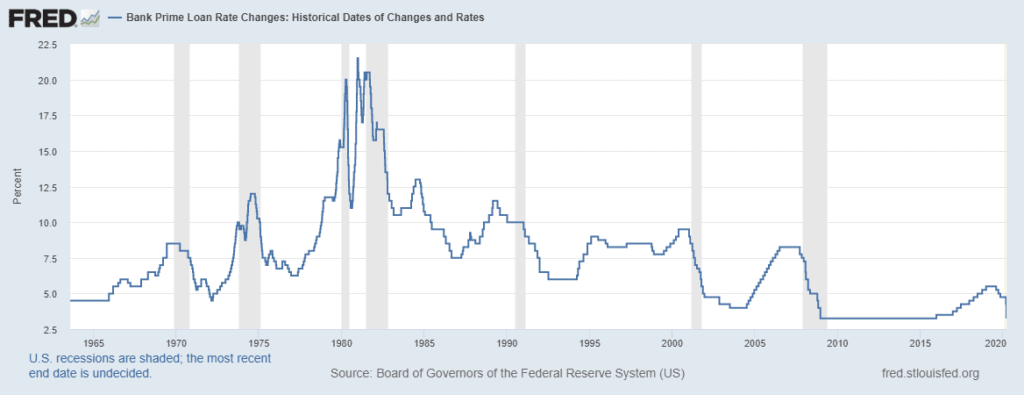
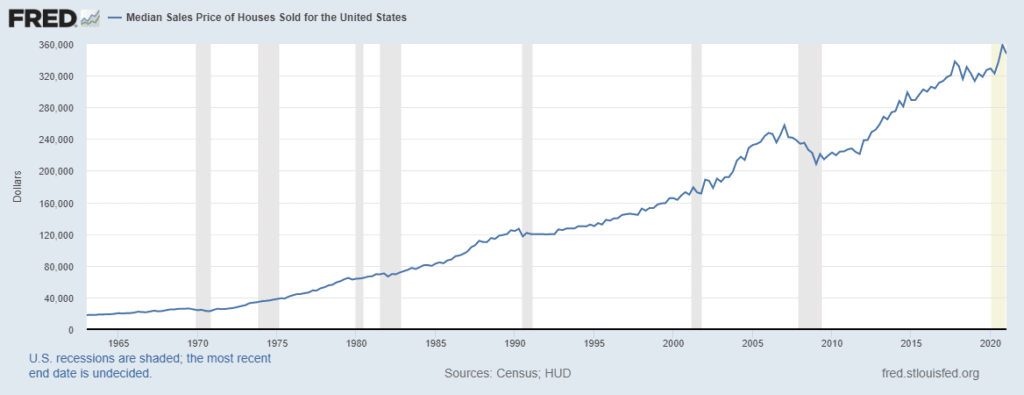
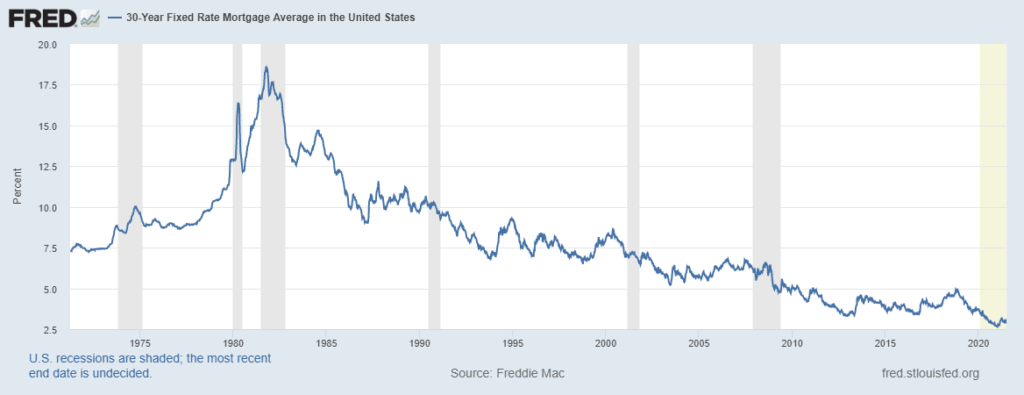
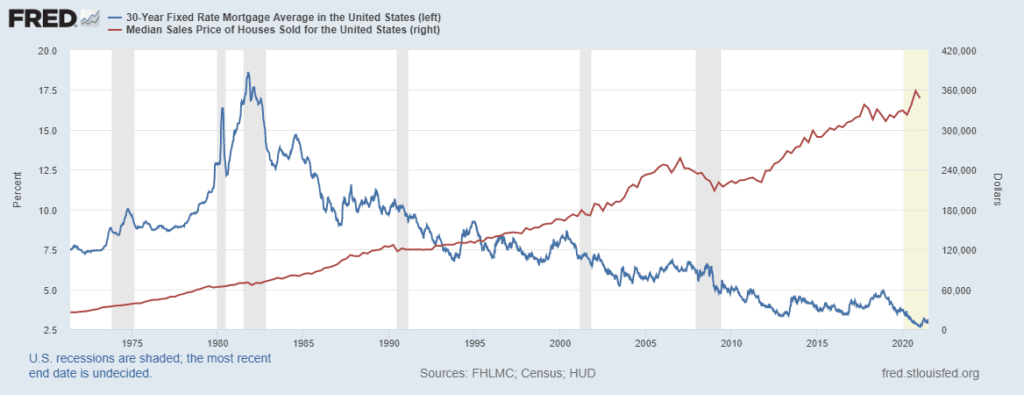
In the 70s we had high interest rates with tax relief.
Its very interesting topic